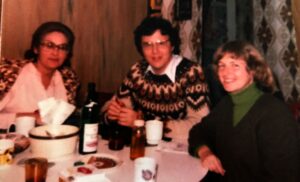Vlad is the development manager whose team does both new product development as well as continuous engineering on old product releases.
His team faces brutal deadlines and constant client pressure. The team is presently 3 engineers short-that is, 17 engineers instead of 20. The three missing engineers retired and no one was found to replace them.
Vlad is extremely demanding. He totally caves in to what the CEO asks for, works 14 hours a day, demands the same from his team. He calls people on weekends and holidays. He runs twice a day, taking team members to run with him, discussing work for all 5 kilometers. He talks shop all the time. Just shop. Nothing else. When employees have a personal tragedy or need to take care of an ailing parent, Vlad is extremely compassionate and releases all pressure, even for months at a time.
There is very little turnover in Vlad’s team-although a recent survey commissioned by HR (in Chicago) shows that his team members are not happy. They ranked their team 2 out of 5 on every parameter. Everyone knows that Vlad’s team is one of the key assets of the company.
An OD consultant (me) was commissioned to see what can be done to ‘prevent attrition of key employees.’
Vlad’s team consists of many Russian born Israelis, a few native born Israelis, 1 Israeli from the FSU, 2 Indians in Bangalore and two Chinese in Cyprus.
Intially I found it difficult to extract information. The Chinese reported that they were very content, ‘just a bit of pressure, that’s all’. The Indians complained about time-zone issues, over which there is almost no control. The Russians and FSU-born Israelis were very suspiscious of me and I managed to extract information only after 3 or 4 months and after the CEO announced that I was hired on a permanent basis.
Years into the project, I have observed that the Russia-born employees have an ambivalent approach of their authoritarian leader. They seem to admire the toughness; they expect their leaders to be extremely demanding to the point of absurdity, and constantly find a way to beat the system. They accept the yolk of authoritarianism, then work around it.
Let’s take Natalie for example. She accepts all deadlines, however absurd, and reports good progress until one month before delivery. Then she starts to explain the slippage. ‘Allon, if I told Vlad 5 months ago about the delay, he would have worked me to the bone-now, I only have 2 months of hard work’.
Or let’s take Raisa. She is always extremely pessimistic, constantly berating his ‘HALLUCIGENTIC (her word) deadlines. She lowers Vlad’s confidence in her; he labels her as a nay-sayer, and avoids pressuring her. Raisa is one of the best brains Vlad has, her best skills being managing Vlad.
In the past, Vlad consulted his team about how to reduce stress. This consultative style resulted in revolt, and Vlad was seen as ‘becoming soft’. So he reverted quickly to a heavy handed policy vis a vis ‘ making committments. The Chinese developer told me that Vlad’s ‘hundred flower movement lasted a month‘.
I find myself thinking of my Vlad and my Russians as of late. And I wonder a lot if people without experience in working with Russians understand the resilience of the Russians to adapt themselves to authoritarian leadership, even respecting it, whilst taking care of their own interests to keep safe. And just how much disrespect they have for leaders who are overly consultative. They like the rules to be clear-you dictate and we evade. So clear. So simple. ‘Vlad never consults us as to how to screw us’, summed up Costa.
My work with this team has been about slowly reducing the number of internal surprises, and establishing a more realistic approach to meeting deadlines in order to better ‘manage the customer’ and reduce ‘misinformation’ during design reviews. Yes, twerks to the system, not making Vlad into Obama.


